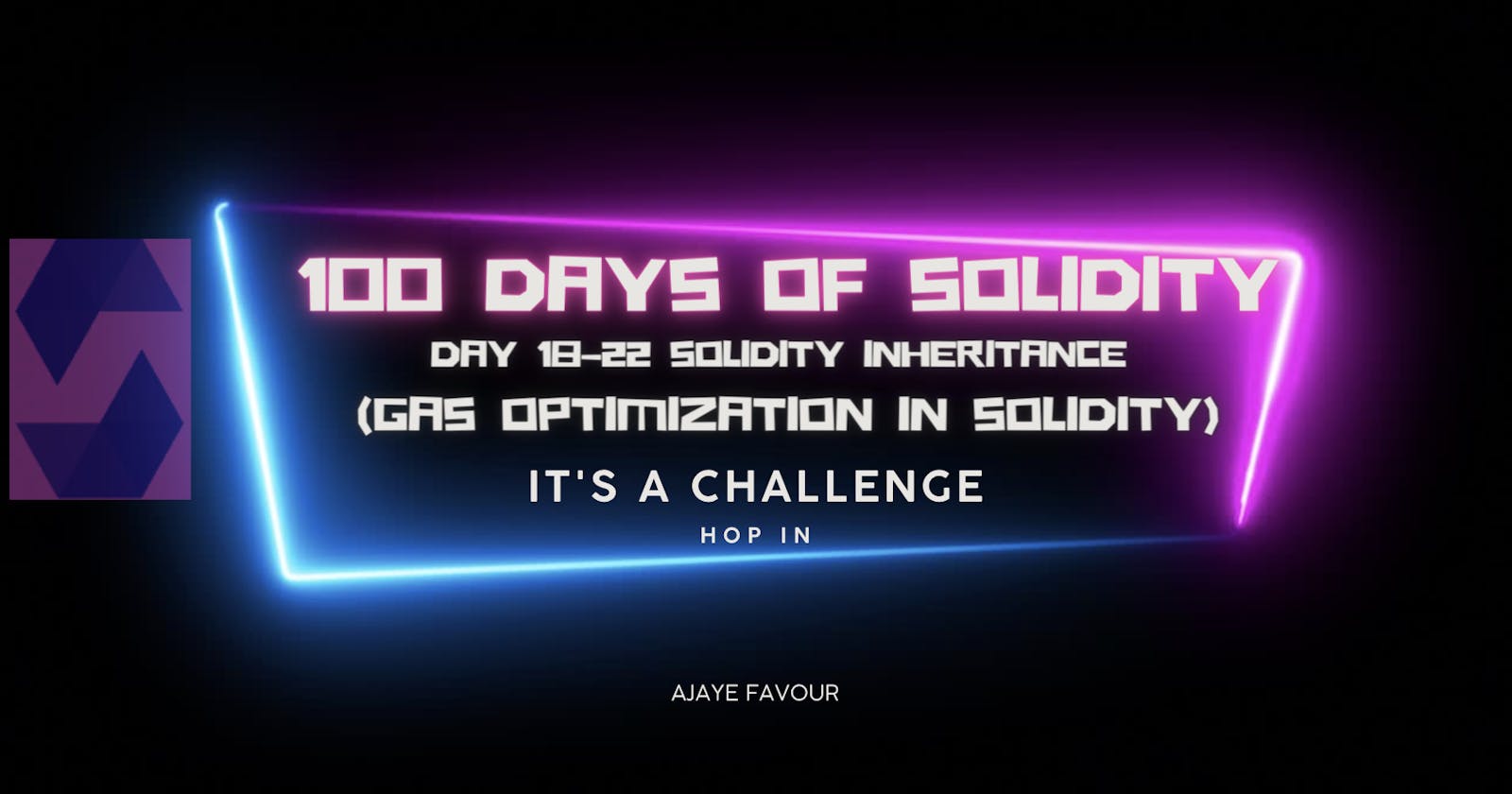Gas Optimization
What is Gas Optimization?
Gas optimization in Solidity is like finding ways to use less gas when you run a program on the Ethereum blockchain. In the Ethereum network, every operation in a smart contract consumes a certain amount of "gas," which is like fuel. By optimizing gas usage, we try to make our smart contracts more efficient and cost-effective.
Imagine you have a car, and you want to reach your destination using as little fuel as possible. You would drive at a steady speed, avoid unnecessary detours, and maintain your car to ensure it's running smoothly. Similarly, in Solidity, we use techniques like minimizing storage changes, using efficient loops, and choosing the right data types to reduce gas consumption and make our smart contracts run faster and cheaper.
Some techniques used in Gas Optimization
Minimizing State Changes
Minimizing state changes is a fundamental gas optimization technique in Solidity that focuses on reducing unnecessary updates to contract state variables to conserve gas.
In the Ethereum network, every change to a state variable consumes gas. This is because updating the state requires the contract to write data to the blockchain, which involves computational effort and incurs transaction fees in the form of gas. Therefore, minimizing state changes is crucial for creating gas-efficient smart contracts.
Here's how you can achieve this gas optimization technique:
Batch Updates: Instead of updating state variables one by one, consider grouping them into batch updates. This way, you can reduce the number of separate state changes, saving gas.
In the contract below, With the
batchUpdatefunction, you can set all three state variables (var1,var2, andvar3) in a single transaction. It performs all updates together, and since they are in the same transaction, no additional gas is consumed for the subsequent updates after the first one.
- Conditional Updates: Be mindful when you update state variables. Avoid updating them redundantly or unnecessarily in cases where the values remain the same.
- Local Variables: Use local variables for intermediate calculations whenever possible. Updating local variables consumes less gas compared to updating state variables.
Immutable Variables: Consider using the
immutablekeyword for constants that do not change during contract execution. Immutable variables are set once during contract deployment and cannot be changed afterward, saving gas on state changes.Avoiding Expensive Operations: Certain operations, like string concatenation or complex data structures, can be expensive in terms of gas. Minimize such operations when updating state variables.
Loop and Iteration Optimization
Loop and iteration optimization is a crucial aspect of gas optimization in Solidity. It involves employing techniques to avoid wasteful iterations and make loops more efficient, ultimately reducing gas consumption and improving the performance of smart contracts.
Here are some techniques for loop and iteration optimization in Solidity:
Loop Unrolling: Unrolling loops involves manually expanding the loop code to reduce the number of iterations. By doing so, you minimize the overhead of loop control and condition checks, resulting in fewer gas costs. However, be cautious, as excessive unrolling may increase the contract's size and complexity.
Iterating over Fixed Arrays: When dealing with fixed-size arrays, prefer iterating using indexed access instead of using
forloops. Indexed access allows direct access to array elements, avoiding loop overhead.Using Mappings and Enums: In scenarios where you require looping over specific data sets, consider using mappings or enums to store and access data. Mappings provide O(1) complexity, whereas enums enable the enumeration of specific values.
Exit Conditions: Incorporate early exit conditions in loops to terminate iterations as soon as the desired condition is met. This prevents unnecessary further iterations, saving gas.
Reduce Complexity: Optimize the logic within loops to minimize complexity. Complex operations within loops can lead to higher gas consumption.
Limit Loop Length: Avoid very long loops whenever possible, as they consume more gas. Split long computations into smaller steps or use mechanisms like pagination for large datasets.
Gas Cost of External Function Calls: Be mindful of external function calls within loops. Each external call carries a certain gas cost, which can compound within the loop.
More techniques for Gas Optimization in Solidity
Choosing the Perfect Data Types: Discover the impact of selecting the right data types—avoid unnecessary conversions and optimize gas consumption.
Strategic Function Order and Modifiers: Reorder functions and apply modifiers strategically to maximize gas efficiency on different contract paths.
Say No to Unbounded Loops: Ensure your loops have fixed upper bounds to prevent potential gas exhaustion and maintain contract stability.
Storage vs. Memory Usage: Learn when to utilize storage and memory appropriately, reducing gas consumption when handling data.
In-Place Operations Wizardry: Master the art of performing operations in-place to save gas compared to creating new variables.
Embracing Inline Assembly: Learn how inline assembly can be leveraged to achieve even greater gas optimization in specific scenarios.
EVM Mechanics Unveiled: Understand Ethereum Virtual Machine (EVM) mechanics to identify and mitigate gas-intensive operations.
Smart Contract Design Insights: Unveil smart contract design principles to minimize transaction complexity and gas requirements.
Utilize Errors that optimize gas like custom errors. Check how custom errors optimize gas here
We will be discussing each of these techniques as time goes on (not very soon though), but click the follow button and turn on your notifications so you don't miss any updates at all.
By optimizing gas usage, we can save money on transaction fees and help the Ethereum network process more transactions efficiently. It's like being eco-friendly with our code, making the blockchain a greener place.
Check out my home page for more articles on solidity and smart contract development. You will be amazed at the amount of knowledge hidden there. A rare gem!
Don't forget to follow me and turn on your notifications.
